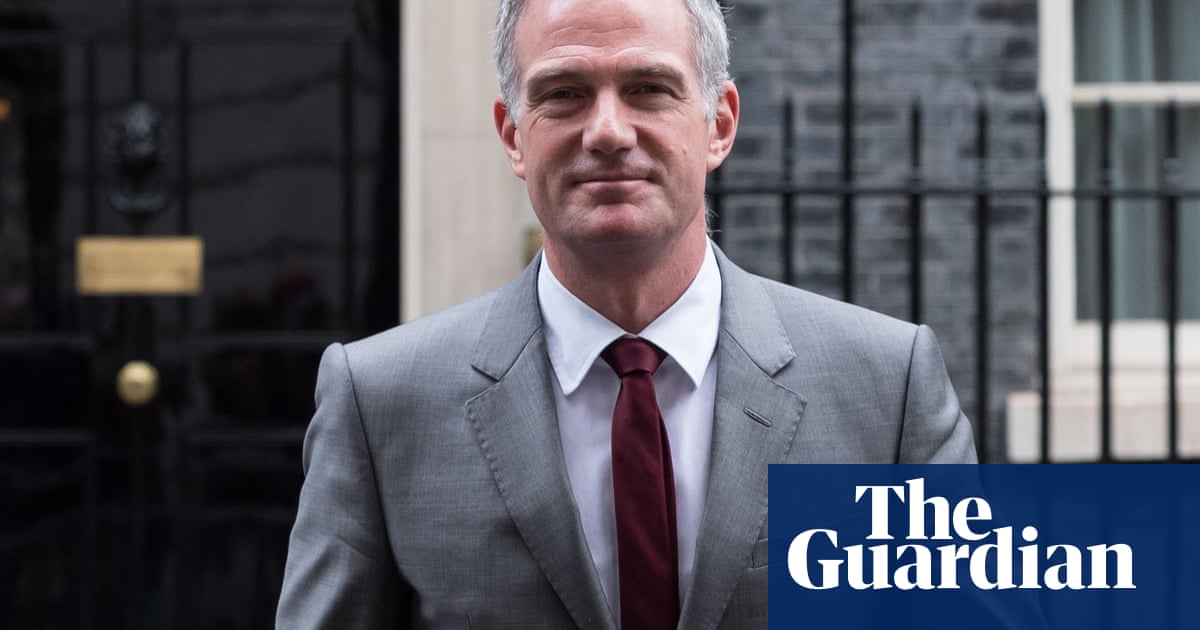The problem with the UK, according to the former Google boss Eric Schmidt, is that it has “so many ways that people can say no”.
However, for some critics of theLabourgovernment, it has a glaring issue with saying yes: to big tech.
Schmidt made his comment in a Q&A conversation with Keir Starmer at a big investment summit in October last year. The prominent position of a tech bigwig at the event underlined the importance of the sector to a government that has made growth a priority and believes the sector is crucial to achieving it.
Top US tech firms have a big presence in the UK, including Google, Mark Zuckerberg’s Meta, Amazon, Apple, Microsoft and Palantir, the data intelligence firm co-founded by theMaga movement backer Peter Thiel.
If a government wants growth, then it is hard to look beyond firms with a combined market value of many trillions of dollars.
According to one former big-tech employee with knowledge of how the leading US companies further their interests in the UK, such heft brings immediate access.
“We never had a problem walking the corridors of Whitehall because we could claim to create thousands of jobs and create millions for the economy. Governments love job announcements,” said the ex-employee.
It is in this context thatPeter Kyle, the tech secretary, has met people from the tech sector nearly 70% more often than his predecessor, Michelle Donelan – at an average of more than one meeting every week. The list includes multiple meetings with Google, Amazon, Meta and Apple.
UKAI, a trade body representing the UK’s artificial intelligence industry, says smaller players are being squeezed out as a consequence.
“Our concerns is that there is a huge imbalance between a handful of global players who are able to influence directly what No 10 is thinking about on policy, and the thousands of other businesses that make up the AI industry across the UK,” says Tim Flagg, UKAI’s chief executive. “Our voice is not being heard, but the economic growth that the government seeks will come from these companies.”
Echoing the former big-tech employee, Flagg adds that big tech firms have the resources allowing them to build and sustain political relationships, “getting them into the room and concentrating influence at a senior political level”.
According to one source who has observed the industry’s interactions with the government, big tech companies also deployed those resources before the general election, allowing them to hit the ground running with established relationships after the Labour landslide.
Another talks of the Tony Blair Institute’s “phenomenal” access to No 10. The thinktank is backed financially by the tech billionaire Larry Ellison and has been a prominent voice in thedebate over AI policyalthough it says it maintains “intellectual independence over our policy work”.
For critics of the government’s interaction with big tech, itsattempts at reforming copyright laware an exemplar of an imbalanced relationship. Ministers have proposed letting AI companies use copyright-protected work without permission to build their products, unless those copyright holders “opt out” of the process in an as-yet undetermined manner.
Sign up toTechScape
A weekly dive in to how technology is shaping our lives
after newsletter promotion
A source close to Kyle has signalled that the opt-out scenario is no longer the preferred option out of four on the table, but the damage has been done. A campaign against the proposal has been backed by every leading light in the UK’s formidable creative industries, from Paul McCartney to Dua Lipa and Kazuo Ishiguro.
If tech is the answer to the government’s economic growth problem, thenAI is a crucial element of that approachwith its promise of runaway improvements in productivity – a measure of economic efficiency. But the mooted copyright policy has been a PR disaster, if measured in celeb-powered headlines. The News Media Association, which represents news organisations including the Guardian, also opposes the proposal. Google and OpenAI, the developer of ChatGPT, have come out against the plans as well.
A former government adviser who worked on tech policy says weakening copyright – which they describe as the “lowest hanging fruit” on a list of pro-tech policy options – isn’t the “magic answer” to winning the AI race anyway.
“In taking this approach, government risks the worst of all worlds, which is devastating a sector where the UK is actually world-leading, while not actually taking the actions necessary to make the UK an AI superpower.”
The department for science, innovation and technology makes “no apologies” for interacting with a sector that employs 2 million people in the UK, according to a spokesperson, adding that “regular engagement” with tech companies of all sizes is fundamental to delivering economic growth.
In his conversation with Schmidt, Starmer said the key question around policies from now on would be “does this promote growth or does it not promote growth?”. The tech industry is at the core of this approach, but in terms of the copyright debate it has damaged important relationships elsewhere.
